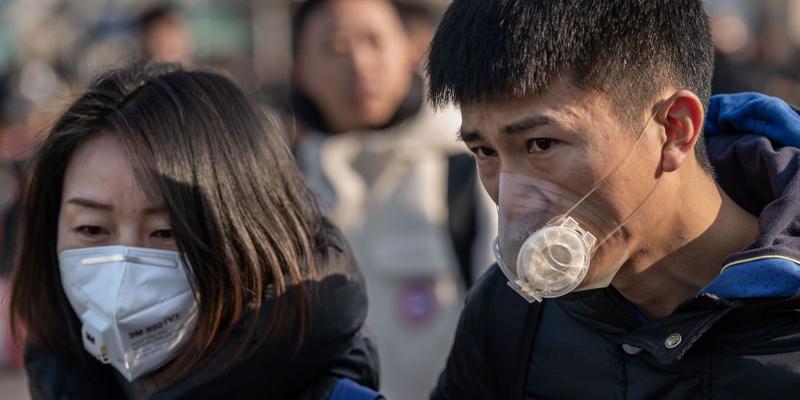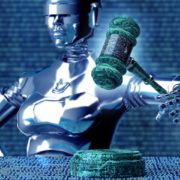The deadly spread of coronavirus is casting an enormous shadow on the global scene where the World Health Organization (WHO) has just declared it a global emergency. Its spread seems to be extremely fast although its mortality apparently remains not too high. The consensus on the virus is that it came from the hotbed of the Chinese wet markets where common people buy wild animals and eat them without great sanitary precautions.
However, behind the spread of the virus and the conditions of the wet markets looms a larger picture of China’s patchy agriculture development. And here it may be useful to compare China and Italy, both two greedy societies who love their food.
Parmesan or Baby Formula
In Italy, the production of the multibillion business of parmesan cheese relies on a small number of suppliers of quality milk. They are about 700 and the consortium of parmesan buys their milk at a premium. The smaller suppliers have a few hundred cows, the larger a few thousands. Cows are raised in strictly monitored sanitary conditions and the consortium randomly checks on the quality of the milk. If the consortium finds that one time the milk is not up to the standards, the supplier is simply dropped, and therefore they lose the premium on the milk. In this situation, no supplier has much incentive on cheating on the quality of the milk, and all the suppliers are conversely incentivized to produce higher quality of produce.
This situation is very different in China. In 2008, Chinese mothers found that the baby milk formula for their children had additions of melamine, an artificial substance that increases the proteins in the milk, but damages the baby’s kidneys. It was not a simple case of some milk suppliers cheating a baby formula company. The company bought its milk from tens of thousands of farmers, most of whom had just a few cows. Farmers sold the milk to intermediaries who then sold it to the formula companies.
Chinese cow milk has little protein and therefore somebody added melamine to fit the nutritional requirements. But it is unclear who added the melamine: suppliers were too many, they didn’t have any direct link with the ultimate manufacturer of baby formula. Therefore, the supply chain was too long and too large, and no quality could be effectively checked.
The only way would be if the state were to check the milk of each farmer, but this would be a monumental effort, extremely costly, which wouldn’t guarantee anyway the possibility of petty briberies. To really guarantee supply quality, one would have to adopt the parmesan system, that is have a smaller amount of suppliers who have economic incentives in keeping high standards. But for this, lots of farmers who now raise just a few cows, would lose their jobs and their land and leave a few large cow breeders.
This in turn could happen in two ways: fast or slow. Slow, one would have to wait for urban development to absorb some 30-40% of the extra jobs in the countryside to the cities, but this would take decades. It took over 30 years to get as it is now over 50% of the Chinese population to the cities, but to reach over 90% of the population to the cities, at the present rate, it could take some 30 years.
Or there could be a faster way. The state would provide a welfare system to the farmers who have been moved out their jobs. The welfare system would be costly, and the state would need to raise taxes to pay for it. But if you force people to pay taxes, those people would want to know how the state spends their money and approve or disapprove on the state’s plans. That is, citizens would objectively pressure the state for some rights on overseeing and voting government’s plans about spending taxpayers’ money in some way or another. Here we are back at the old adage, no taxation without representation.
Of course, Chinese leaders could force people to pay taxes without conceding representation, but this would make taxpayers more hostile towards the government. They would then try to evade taxes, and the government would have to push harder on repression to force people to cough up their cash. More importantly, this would break the social contract the Chinese government established with its own people after Tiananmen in 1989. On the wake of the crackdown, Chinese leaders established a pact with the student: they could do business as they wanted, pay no taxes, as long they didn’t get meddle with politics. So, they could get rich but they had to keep out of politics. If the Chinese government now breaks that social contract, it should establish a new contract or its position would be severely weakened.
A 2008 Misunderstanding
Perhaps, around 2007, China was also considering the idea to set up a welfare system and move towards greater democratization adapting a western economic and political model. However, in the aftermath of the 2008 financial crisis, China felt that the American system was no longer working, there was little or nothing to learn from Western countries, and China should rather carry on with its own system without rocking the boat too much.
Then, plans for welfare system and democratization were simply withdrawn. With this, indirectly through a long but very tight chain of consequences, the problems of unsanitary agriculture, which were behind the Avian flu that disrupted poultry supply in the late 1990s and behind the 2003 crisis of SARS, were simply shelved.
Certainly, many countries have unsanitary agriculture, but they are less mobile than the Chinese population. Chinese are extremely mobile in their country thanks to a very modern and efficient system of roads, railways and airways. Moreover, unlike other countries where there are dietary taboos, like in India, (Hindus don’t eat beef, Muslims don’t eat pork, many are vegetarians), Chinese notoriously eat everything. In this situation, to many farmers, access to the sales of wet markets is a convenient way to increase their thin income.
Therefore, although in a quick simplification, here we can see some of the crucial elements behind the present outbreak: a primitive agriculture, no dietary restrictions, extreme mobility of the population. The combination of these three elements seems to be the systemic backdrop producing a unique event in contemporary history – the outbreak of two dangerous pandemics in the same country only 17 years apart.
The global impact of China’s agriculture
Other countries have primitive agriculture but they have either dietary restrictions or a low mobility in their domestic population. Or if they have little or no dietary restriction and high people’s mobility they have a very modern agriculture. In China we can see also is that the coincidence of animal epidemics with the outbreak of SARS in 2003 and the coronavirus in 2020. In 2003, before SARS, there was a massive outburst of avian flu. Before the coronavirus, in the spring of 2019, China was swept by an epidemic of swine flu where half of the pig population has been culled, making up for about a quarter of the total world pig population.
The pig flu is still ongoing and it’s not clear when and if it will be overcome, and just on February first, in the southern Chinese province of Hunan, next to Hubei, cradle of the Coronavirus, there was a new massive outbreak of bird flu.
Here there are two issues to consider. One is the solution of the present coronavirus outbreak, and certainly the whole world will have to try to collaborate to come to stop the virus. Then, the second is a larger systemic issue: how to modernize Chinese agribusiness to prevent future massive spread of animal and people’s diseases.
Farm production and meat sales must be modernized and carried out according to modern sanitary conditions. But this has also large political implications. Clearly, SARS and the Coronavirus prove that these issues are not just Chinese, but as they have massive health insecurity impact on all the world, they are global issues.







Well, the real problem here is superstition about the supposed values of wild meats, which contain wild viruses to which humans have no resistance. In a way I fault myself on this, because I emphasized the validity of local.